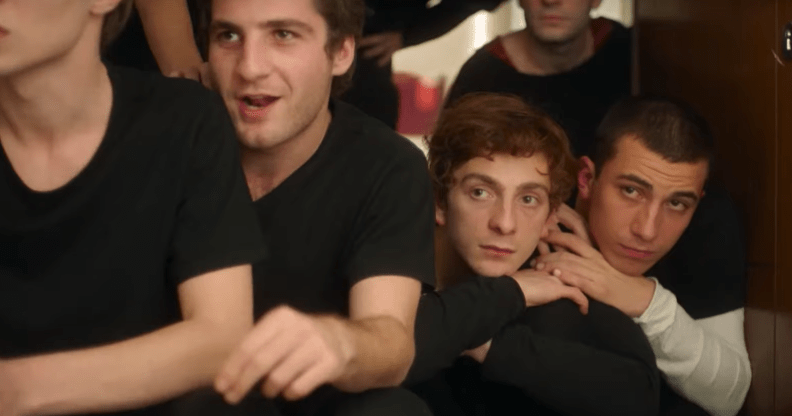Georgian hate groups planning to block premiere of Swedish film that celebrates gay love

Scene from the critically-acclaimed Swedish-Georgian film, ‘And Then We Danced’ (YouTube)
Georgian far-right groups are mobilising against the premiere of And Then We Danced, a Swedish film that stars a gay dancer who is coming to terms with his sexuality.
And Then We Danced is a tender coming-of-age story filmed in Tbilisi, Georgia, billed as a “Georgian gay dance romance”.
It was recently chosen as Sweden’s official Oscar submission for Best International Feature Film, and tickets for the Tbilisi premiere on November 8 reportedly sold out in minutes.
But the film’s popularity has not extended to the country’s ultra-conservative groups, which have described it as “revolting”.
The critically-acclaimed movie has provoked the nationalist organisation Georgian March, whose leader Sandro Bregadze has pledged to stop the screenings from going ahead.
Bregadze condemned And Then We Danced as “homosexual propaganda” and said that those who are going to see it “are or want to be gays”.
The Georgian Orthodox Church is also strongly opposed to the film and plans to “express a large protest” against the movie being seen by anyone in Georgia.
The church’s head of public relations, Andria Jagmaidze, even appeared on TV to claim that “[the movie] is yet another attempt to downplay Georgian, Christian values”.
The Georgian LGBT+ rights group Equality Movement called on on the police to step in, raising the concern of people being attacked at movie theatres. The threats grew so severe that the Ministry of Public Affairs released a statement promising to ensure public safety at all screenings of And Then We Danced.
“On November 8, 9, and 10, different movie theatres in Batumi and Tbilisi will offer the premiere of the movie And Then We Danced,” it said. “Different groups of society have commented on the matter, threatening disruption of the movie projection.
“The Ministry of Internal Affairs of Georgia ensures the protection of public safety and order, as well as the freedom of self-expression (which, of course, corresponds to the frames of the law).
“We address everyone: obey the law. Otherwise, police will use their lawful mandate and suppress unlawful acts immediately.”

